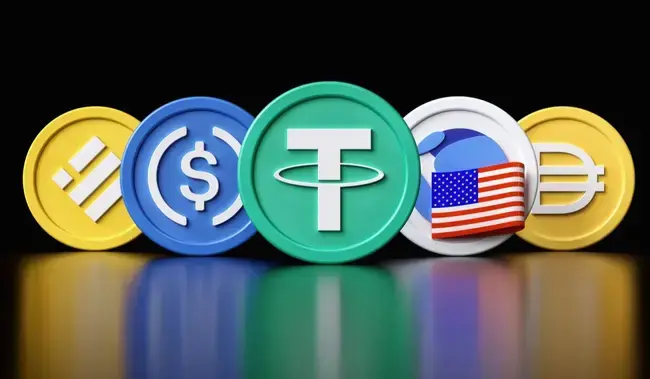Highlights:
- Kelley warns the GENIUS Act loophole could hurt rural American towns and local banks.
- Crypto platforms give high rewards but have no FDIC insurance, risking people’s money.
- Loopholes in the law may let foreign stablecoin firms harm U.S. community banks.
Alabama State Senator Keith Kelley has voiced strong concerns over the federal stablecoin legislation, the GENIUS Act, which President Donald Trump signed on July 18. In a recent op-ed for 1819 News, Kelley highlighted that a loophole in the law could threaten rural economies and local community banks.
Threats to Rural Communities and Local Banks
Kelley emphasized that small businesses, family farms, and community banks form the backbone of Alabama towns, and he has seen how strong policies and local support drive rural growth. However, he says the GENIUS Act could disrupt this system by giving cryptocurrency issuers a legal way to operate, which might pull deposits from small banks. He noted that community banks depend on local deposits to lend to families and businesses.
If money moves to crypto platforms, deposits could dry up, loans would shrink, growth could slow, and jobs might be lost. He added that if community banks close, towns would feel the impact. Farms, shops, and Main Street businesses could struggle from what he called an attack on rural financial health. He also said crypto platforms have fewer safety rules and no FDIC insurance, but can still attract people with high rewards.
Kelley said:
“If those deposits decrease, their ability to offer loans to individuals, families, and small businesses will be significantly restricted. For our rural farming communities in particular, where margins are thin and seasonal cash flow is critical, the loss of a trusted lending partner could be devastating.”
Kelley also noted that crypto platforms could collapse. He pointed to several high-profile crypto failures in recent years where customers lost their investments. Unlike banks, there is no insurance for victims of cybercrime on these platforms. In contrast, FDIC insurance protects up to $250,000 in deposits if a bank fails.
🇺🇸 GENIUS Act concerns
Alabama Senator Keith Kelley warns the new federal stablecoin law could devastate rural economies if loopholes aren’t fixed.
Will the first U.S. stablecoin framework already need amendments?— Paplianos (@paplianos) September 11, 2025
GENIUS Act Loopholes and Global Concerns
Although the GENIUS Act was signed in July, it will not take effect until the U.S. Treasury and Federal Reserve complete the necessary regulations. The Treasury has already started seeking public feedback, particularly on measures to prevent illicit activity. Supporters say the law will promote innovation and provide clear rules for stablecoin issuers. Critics, however, warn that loopholes could give foreign issuers an advantage and let crypto firms bypass certain restrictions.
Former CFTC chair Timothy Massad pointed out that the law does not clearly define what counts as a “comparable” regulatory framework for foreign stablecoin issuers. Banking groups also cautioned that this loophole could result in up to $6.6 trillion in deposit outflows from traditional banks. Kelley urged regulators to stop cryptocurrency companies from acting like banks without following rules. He said this “regulatory arbitrage” could put rural families and local economies at risk.
It’s not only Alabama raising concerns. In July, Europe’s largest asset manager, Amundi, warned that U.S. stablecoin rules could destabilize the global payment system. They said stablecoins risk becoming “quasi-banks” that avoid regulations and weaken traditional lenders. Kelley says this matches his worries for rural Alabama. He compared it to a Ponzi scheme and said Congress must fix the law and close loopholes that put local banks at risk.
EUROPE’S LARGEST ASSET MANAGER AMUNDI WARNS U.S. STABLECOIN RULES MAY DISRUPT GLOBAL PAYMENTS
Amundi cautions that overly permissive U.S. stablecoin policies—especially if they allow interest-bearing features—could destabilize the global payment system. By drawing deposits away…
— Naeem Aslam (@NaeemAslam23) July 3, 2025
Best Crypto Exchange
- Over 90 top cryptos to trade
- Regulated by top-tier entities
- User-friendly trading app
- 30+ million users
eToro is a multi-asset investment platform. The value of your investments may go up or down. Your capital is at risk. Don’t invest unless you’re prepared to lose all the money you invest. This is a high-risk investment, and you should not expect to be protected if something goes wrong.






